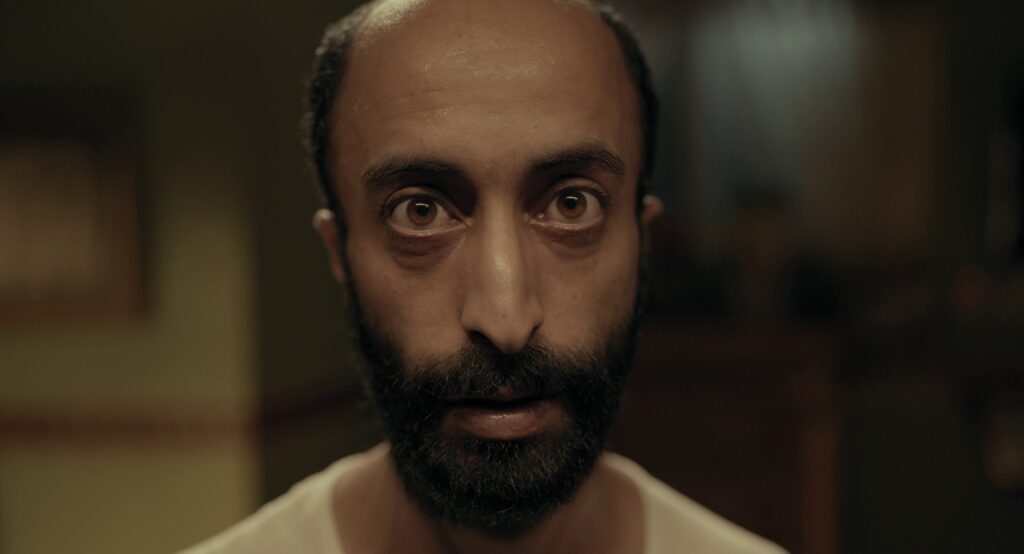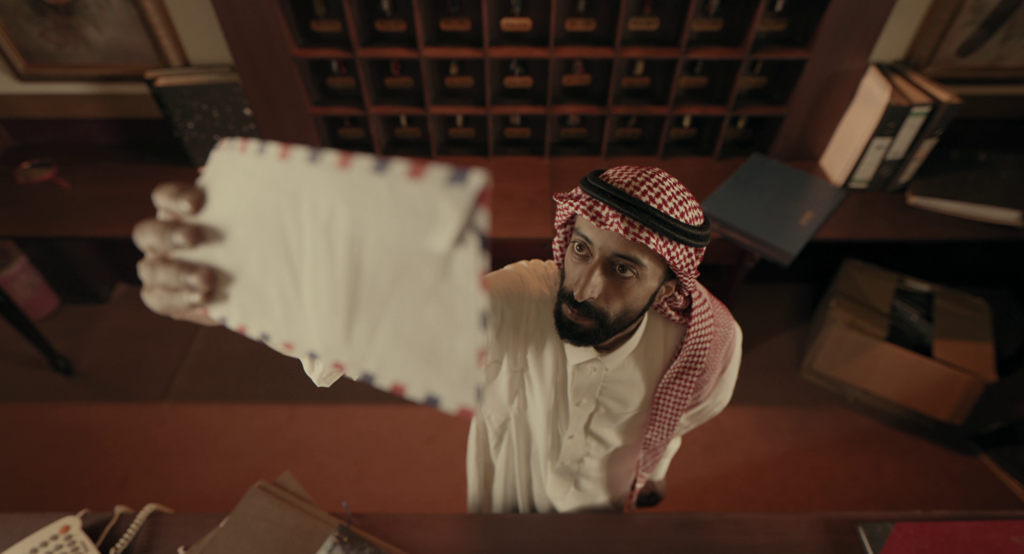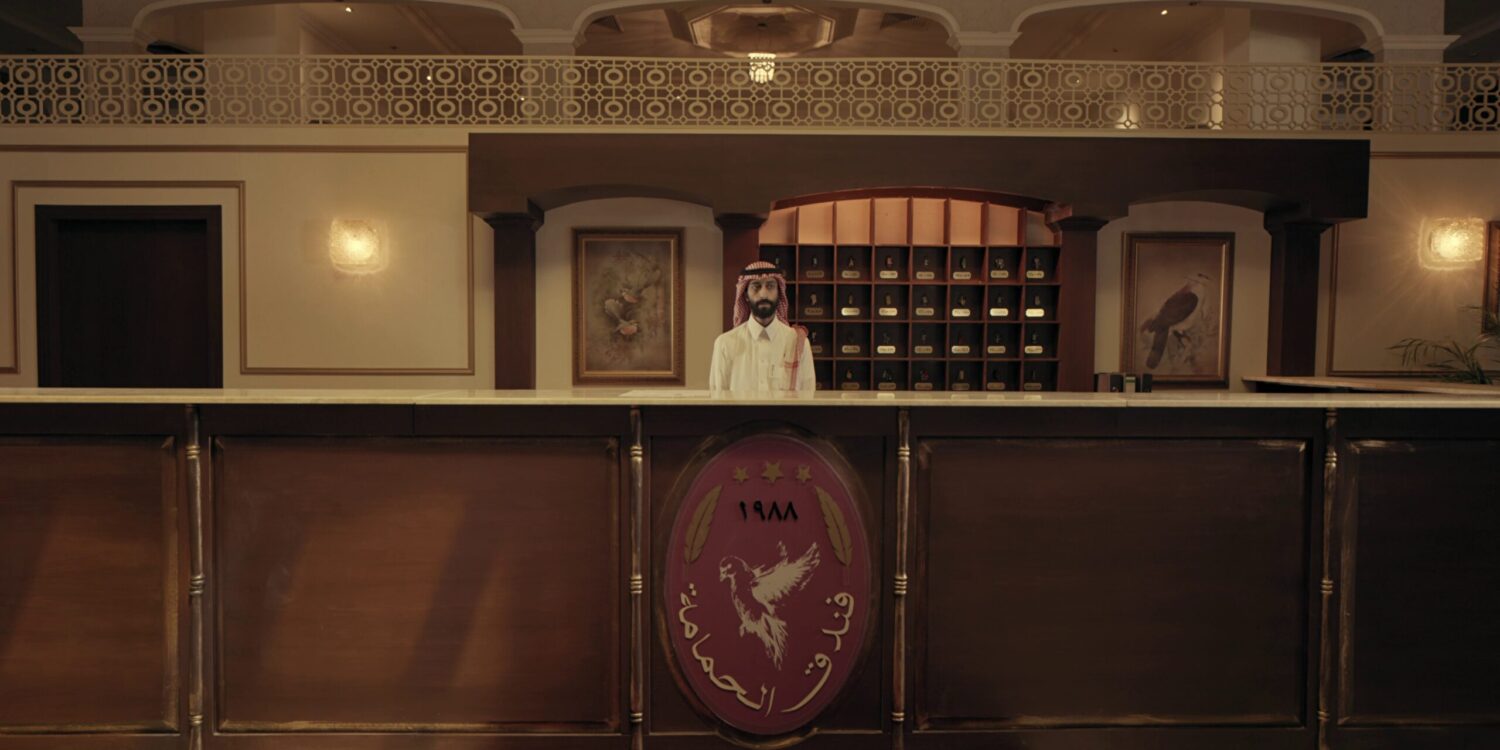Throughout the film festival, we’ll be bringing you bitesize, behind-the-scenes, blogs to read. Written by Ja’far ‘Abd al-Hamid, a writer-director, with a focus on Arab British stories. His latest feature film, Kal & Cambridge, is scheduled for release next year.

“Do you have any sandwiches, please?” I enquire from the young man behind the counter at the Institute of Contemporary arts café.
“No sandwiches, sorry. We have a selection of stews!” He points to the peg letter board on the wall.
Ever since overhearing someone admonish a person seated next to them for chewing gum at the cinema many Cannes ago, I have been wary of snacking during screenings.
Not sure how many spoonfuls of stew one would get through before getting apprehended by a member of the chewing police.
As a firm believer in avoiding being frogmarched out of a packed auditorium, I munch through a packet of crisps, washed down with a gloriously unhealthy can of fizzy drink, before entering cinema No. 1.
Written and directed by Mohamed al Salman, Raven Song (2022) is an audacious attempt at a Kafkaesque character study that, among others, taps into the cinematic language and framing of Jean-Pierre Jeunet’s Delicatessen (1991) and Takeshi Kitano’s oeuvre of an understated, almost still, performance.

The framing underpins the solitude and a real lack of emotional support in the life of the lead character, played by Asem Alawad. Not only does he have a fraught relationship with his father, who disparagingly calls him a “dumb goat”, he also has been diagnosed with a brain tumour.
To his doctor’s consternation, he is reluctant to undergo the operation to remove the growth.
His life takes a turn for the fantastic, when a young woman, dressed in a white Abaya, with fair skin and light eyes, enters the foyer of the hotel reception of his place of work.
The brief encounter feels more of a daydream seeded within his mundane existence.
To make her fall for you, you need to write her a song, is the counsel of his friend Abu Sagr, who fancies himself as a singer who moonlights as a tow-truck driver. Abu Sagr nicknames our hero as “Al-Ghurab”, Arabic for raven.
A chance encounter with a journalist in a national daily, combined with Abu Sagr’s exuberant promotion of Al-Ghurab’s flourishes in verse, not to mention the journalist’s own agenda on modernist (Hadathi) vis-a-vis the classical school of Arabic poetry, all result in a newspaper profile of Al-Ghurab.
The profile paints our hero as a proponent in the debate, with contentions opposed to the prevalent wave of dissent against the classical school.
In one of the more accomplished absurdly humorous scenes in the film, Al-Ghurab is abducted by a group of poets who offer him Arabic coffee in the back of a people carrier.
They demand that he explain his position on the current movement in Arabic poetry.

En route home, I clock a lady at the bus stop who’d sat a couple of rows ahead of me at the screening.
“Hello! What did you think of the movie?” I ask the startled lady.
“What did you think of it?” She retorts.
“I enjoyed it,” I confirm.
She appears to be gathering her thoughts about the film when her bus arrives.
As she taps her Oyster card, she turns back, “I think it was great to see a Saudi film in London.”
Stepping into the moderately crowded platform at Piccadilly Tube station, I notice two young women who happen to have sat only a couple of seats away from me.
They both like the production values of Raven Song. “It was beautifully shot,” agrees one of them.
“I think it was directed at a local Saudi audience,” offers the other viewer.
All three of us agree, however, that having a local audience in mind isn’t wholly undesirable, compared to productions that are more concerned with an international distribution than their own home market.
Before I get to ask them about any other films at SAFAR they plan to see, the train makes a raucous screeching entrance to the platform.
I wish them goodnight.
On the train, I check my iCalendar for the next SAFAR screenings.
The Blue Caftan (July 8th, Barbican)

